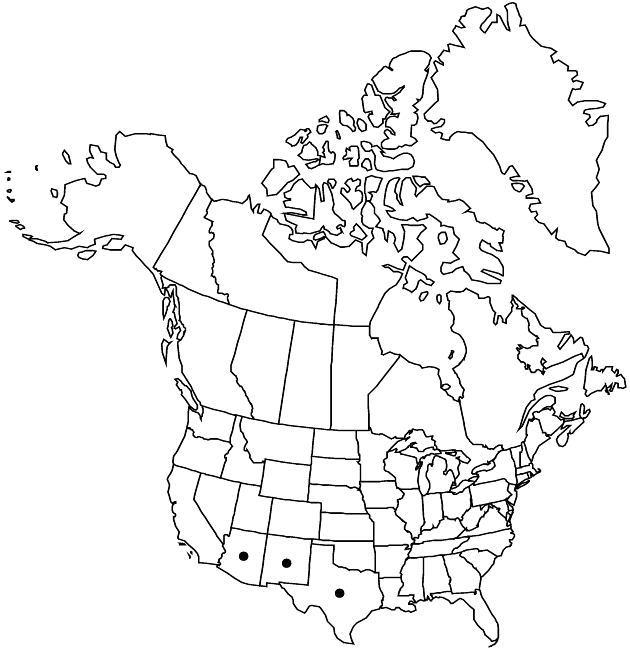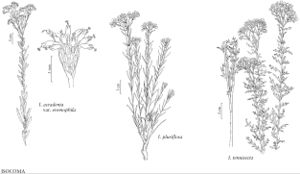Isocoma pluriflora
Erythea 2: 111. 1894.
Herbage usually glabrous or sparsely hispidulous, sometimes densely hirtellous, leaves sometimes stipitate-glandular, never resinous. Leaf blades oblanceolate to narrowly oblong-oblanceolate or nearly linear, mostly 10–40(–50) mm, margins usually entire (hispidulous-cilate, sometimes also on faces), sometimes shallowly toothed distally (especially along western margin of range; teeth in 1(–3) pairs). Involucres 3.2–5.5 × 2.5–4 mm. Phyllary apices yellowish, or if green, then margins scarious, not aristate, gland-dotted, without resin pockets. Florets (8–)11–17(–21); corollas 5–6 mm. Cypsela ribs not forming hornlike extensions. 2n = 12, 24.
Phenology: Flowering (Apr–)Jul–Oct.
Habitat: Igneous or calcareous substrates, sometimes over gypsum, sandy or clay loam, commonly with Larrea-Prosopis
Elevation: 400–1400(–1600) m
Distribution

Ariz., N.Mex., Tex., Mexico (Chihuahua, Coahuila).
Discussion
Like other species of Isocoma, I. pluriflora usually is gland-dotted, but scattered plants are stipitate-glandular.
Selected References
None.
